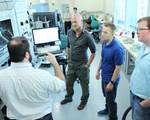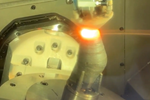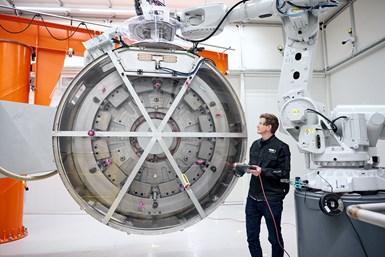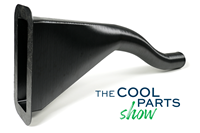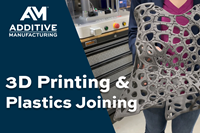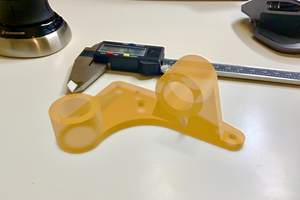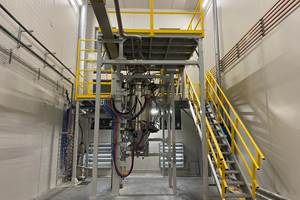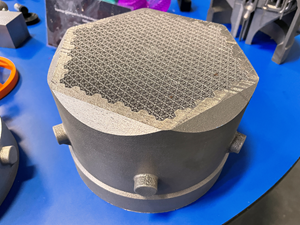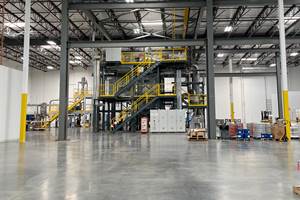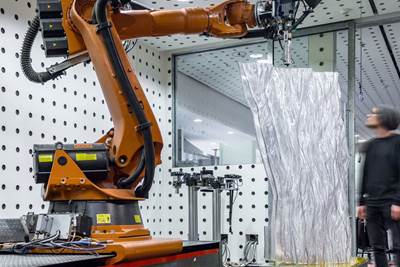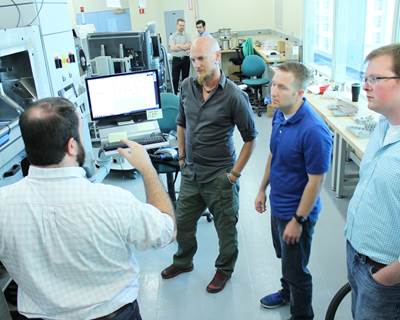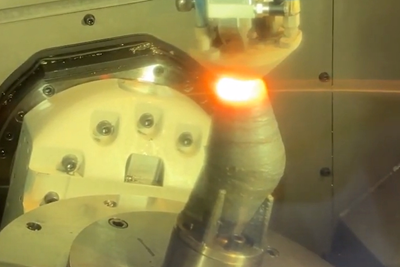GKN Aerospace Invests £50 Million to Grow Sustainable Additive Fabrication Capability
The investment will establish a Center of Excellence in Trollhättan, Sweden, which the company will use to accelerate and scale up production of the groundbreaking technology.
GKN Aerospace is boosting its commitment to sustainable manufacturing with a £50 million (600 million SEK) investment in its cutting-edge additive fabrication technology in Trollhättan, Sweden. The Swedish Energy Agency’s Industriklivet initiative will fund £12 million (152 million SEK) of this investment, which the company says will help to revolutionize production methods by reducing raw material usage by up to 80%. The technology will be embedded at GKN Aerospace’s Trollhättan facility in Sweden, which will be operational later in 2024.
Currently, aircraft engine components rely on large castings and forgings, with up to 80% of the material machined away before reaching the final form. By employing additive technology, which involves layer-by-layer construction using metal wire or powder fused together with lasers, GKN Aerospace is able to minimize raw material waste, energy use and shipping within production. This significantly cuts emissions, costs and lead time.
GKN Aerospace says it has been at the forefront of additive fabrication for almost two decades, and has significant research and technology centers in Sweden, the UK and the U.S. Thanks to the backing from Industriklivet, the new additive production center in Sweden is projected to create around 150 new job opportunities for operators, technicians and engineers at the Trollhättan facility.
“We are committed to driving sustainability in the aviation industry and pioneering improved solutions for our customers,” says Joakim Andersson, president of GKN Aerospace’s Engines business. “Our development of additive fabrication for large, complex and load-bearing aircraft components is a great example of this and it marks a significant breakthrough for the industry.”
The company says the benefits it sees from this technology are truly game-changing. “Government support has been pivotal in enabling us to push our capabilities forward and I am delighted to establish this unique technology in our world-leading facility in Trollhättan Sweden,” Andersson adds.
“GKN Aerospace’s solution will be able to contribute to a reduced use of raw materials and create opportunities to fundamentally change the design, making the aircraft engine lighter and more efficient. “This is the first time this technology is being tested for this component size and we see the potential for it to spread globally and also in other areas,” says Peter Engdahl, head of Research, Innovation and Business Development at the Swedish Energy Agency.
Last summer, the company relocated its North America AM center of excellence to Fort Worth, Texas. The move included a larger facility, plans for an additional larger AM cell and increased collaboration within the aerospace ecosystem.
GKN Aerospace serves some of the world’s leading aircraft manufacturers, as it designs, manufactures and delivers an extensive range of advanced aerospace systems, components and technologies — for use in commercial and defense aircraft ranging from helicopters, business jets, passenger planes and advanced air mobility vehicles to advanced fighter aircraft.
In line with its mission, GKN Aerospace is committed to achieving net-zero emissions by 2050. Lightweight composites, additive manufacturing, electrical wiring interconnection systems and innovative engine systems help to reduce emissions and weight on today’s aircraft, while it collaborates with global partners to accelerate the development of zero-emission aircraft technologies, including hydrogen-powered propulsion and all-electric flight.
Related Content
Why This Photopolymer Developer Wants Prototyping to Go “Massless”
High-performance materials supplier polySpectra is embracing augmented reality (AR) with a new tool called Massless intended to reduce unnecessary 3D printing.
Read MoreCan the U.S. Become Self-Sufficient in Aerospace Alloy Metal Powders?
6K’s technology can upcycle titanium and nickel-alloy parts into additive manufacturing powder. Here is how the circular economy helps national security.
Read More3D Printed Heat Exchanger Illustrates Siemens' CATCH and Release Approach
Solutions for energy efficiency, sustainability, part repair and more are developing at Siemens’ Charlotte Advanced Technology Collaboration Hub (CATCH) in North Carolina.
Read MoreMultimodal Powders Bring Uniform Layers, Downstream Benefits for Metal Additive Manufacturing
A blend of particle sizes is the key to Uniformity Labs’ powders for 3D printing. The multimodal materials make greater use of the output from gas atomization while bringing productivity advantages to laser powder bed fusion and, increasingly, binder jetting.
Read MoreRead Next
3D Printing Brings Sustainability, Accessibility to Glass Manufacturing
Australian startup Maple Glass Printing has developed a process for extruding glass into artwork, lab implements and architectural elements. Along the way, the company has also found more efficient ways of recycling this material.
Read More4 Ways the Education and Training Challenge Is Different for Additive Manufacturing
The advance of additive manufacturing means we need more professionals educated in AM technology.
Read MoreHybrid Additive Manufacturing Machine Tools Continue to Make Gains (Includes Video)
The hybrid machine tool is an idea that continues to advance. Two important developments of recent years expand the possibilities for this platform.
Read More


